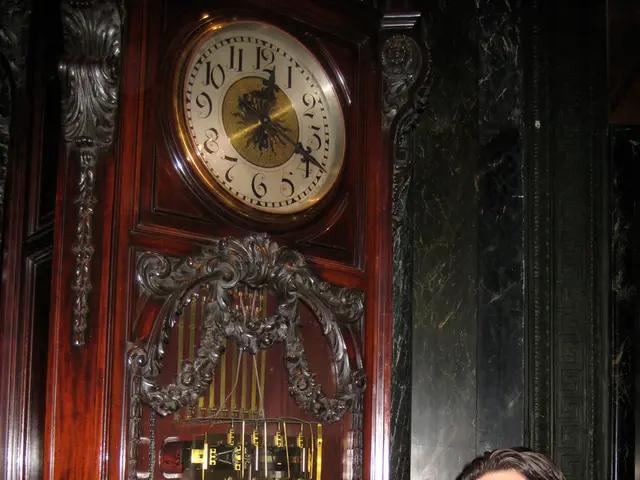Rebuild Relationships to Foster Trust with Children
Being a parent is undeniably one of life's most rewarding, yet challenging roles. A rollercoaster ride of emotions, parenting can test even the strongest of us, pushing our patience and emotional resilience to the limits. No matter how much adoration you harbor for your kid, there will be moments when your composure slips and you react in ways that make you question yourself later. Maybe you've had a long day at work, or perhaps your child just isn't listening, despite multiple reminders. The next thing you know, emotions take control, and a frustrated outburst turns your calm household into a warzone.
We've all been there at some point. The key as a parent isn't to eliminate these tense moments (which is essentially impossible), but to know how to mend the broken relationship once the dust settles. By learning to repair relationships after such incidents, you won't just resolve the immediate issue, but also strengthen the emotional bond between you and your child. Let's dive into how to incorporate this essential skill into your parenting.
Why Repair Matters
Parenting brings a wealth of joy, but it also comes with its fair share of stresses, frictions, and everyday responsibilities like managing work, chores, and child-rearing. These pressures inevitably lead to moments of disconnection, often referred to as ruptures, in your relationship with your child. A rupture occurs whenever the emotional connection is affected due to frustration, anger, or poor communication. During these times, you might snap, raise your voice, or say something inappropriate, causing hurt to your child.
While these ruptures are a normal part of the parent-child dynamic, what matters is what happens after. Leaving things unresolved means allowing the conflict to fester, hurting your child emotionally and possibly impacting their self-worth and relationships in the future. However, every rupture presents a chance for growth when followed with mending and connection.
Repairing isn't about perfection, but rather about modeling how to handle mistakes and emotions in an empathetic and responsible manner.
Getting It Right
Repair goes beyond simply saying "sorry" and moving on. While apologies are essential, true repair entails acknowledging the impact of your words and actions, taking responsibility, and actively working to restore trust and reconnect with your child.
Here's what repair might look like after the frustration-fueled outburst about the messy room: once you've had some time to cool down, you approach your child, express your feelings, and take responsibility. You tell them, "I'm truly sorry I lost my cool earlier. I was upset, and I understand it probably hurt you. I'm still not okay with the mess, but I was wrong to yell at you. I'll be more mindful of my response next time."
In this moment, you're acknowledging that your reaction was hurtful and inappropriate, taking responsibility, and reassuring your child that despite the conflict, they are still loved and valued. This approach shows your child that mistakes can be corrected, and that your relationship is strong enough to weather the storm.
The Consequences of Neglecting Repair
Neglecting to repair after a conflict with your child can have long-lasting effects on their emotional well-being and self-esteem. Children, particularly the young ones, may struggle to understand the cause of the disconnection, often blaming themselves for your reaction. Over time, these feelings can turn into deeper emotional issues like anxiety, low self-esteem, and difficulty forming healthy relationships.
However, when you take the time to repair after a conflict, you offer your child another perspective, reassuring them that they are loved and valued, regardless of the situation at hand. Repair also provides an important emotional model for your child, teaching them that it's essential to admit mistakes and work towards resolving conflicts in a healthy and empathetic manner.
Practical Steps to Repair a Relationship
- Calm Yourself Before approaching your child, ensure you're in a calm state of mind. Emotions may still be running high, so taking a few moments to breathe and gather your thoughts is crucial to having a productive conversation.
- Acknowledge the Problem Be clear and honest about the issue, not sweeping it under the rug. For instance, you might say, "I'm truly sorry for yelling earlier. I let my emotions get the best of me, which was unfair to you." Naming the problem helps show your child that you understand and take responsibility for your actions.
- Take Responsibility This is a crucial step, as it involves accepting the consequences of your actions and moving forward. In this stage, you might say, "I shouldn't have yelled at you, and I'll work to find healthier ways of communicating my frustrations in the future." Admitting your mistakes offers your child an important emotional model, teaching them that it's okay to make mistakes, as long as you strive to learn from and grow.
- Reassure Your Child Let your child know that your love and affection for them is unwavering and that the conflict does not define your relationship. You can express this through a smile, a hug, or soothing words, such as, "I love you and having a clean room is important to me, but I value our relationship above all else."
- Move Forward Finally, make a plan with your child, discussing how you can address future conflicts in a more constructive manner. Show them that you're committed to improving and that their feelings and opinions matter to you. For example, you might ponder, "Next time I'm upset about the mess, let's find a solution together. How about we take turns helping to keep your room tidy?"
The Impact of Repair on Your Child
Neglected repair can result in lasting damage to your child's self-esteem and emotional growth. However, repair served correctly can help prevent these negative feelings from taking root. It reassures your child that despite mistakes, they are valued and loved, setting the stage for future emotional resilience and healthy relationships.
As a parent, your ability to repair your relationship with your child teaches them crucial life skills. They learn that emotions should be addressed openly and empathetically, and relationships need work to maintain strong connections. These lessons will benefit them for years to come, both during their childhood and as they grow into adulthood.
Never Too Late to Mend
It's a common misconception that it's too late to repair once a conflict has escalated or time has passed. The truth is, it's never too late to mend the relationship with your child, regardless of their age. Reaching out, admitting your mistakes, and offering an olive branch can open the door to healing, even if years have passed.
By acknowledging your past errors, you can show your child that you've grown and are committed to improving your relationship. This can help break down any emotional barriers that have kept you apart and foster a deeper sense of understanding and connection.
Learning from Our Mistakes
Remember, it's not about being a perfect parent; it's about making the effort to learn from our mistakes and being open to learning new ways to connect with our children. By embracing the power of repair, you'll turn moments of conflict into opportunities for growth, understanding, and strengthening your bond with your child.
- In the realm of health-and-wellness, healing relationships after moments of parenting friction is crucial for a child's emotional well-being and self-esteem, preventing long-term issues like anxiety and low self-esteem.
- Art and science, two distinct realms, oddly intersect in the parenting journey, as both modeling empathy and taking responsibility are integral to repairing damaged relationships.
- In the dynamic tapestry of family-dynamics and lifestyle, the ability to repair relationships after disagreements serves as a vital tool, not only resolving immediate issues but also strengthening emotional bonds and instructing the next generation on healthy relationship-building.








